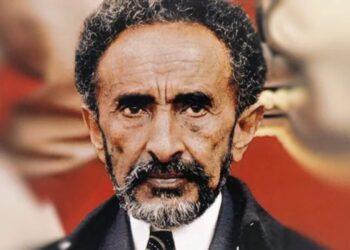Governments exist to organize and regulate the life of a society or community. Since ancient times, humanity has devised various forms of government to serve this purpose, adapting to social, economic, cultural, and historical contexts. Each form of government has its own principles, structures, and methodologies for decision-making, distributing power, and ensuring societal order. Understanding the different forms of government allows us to appreciate the complexity of political systems and the diverse ways societies organize themselves to achieve common goals.
1. Democracy
Democracy is a form of government where power is vested in the people, who exercise that power either directly or through elected representatives. The term comes from the Greek word “dēmokratía,” meaning “rule by the people”.
Types of democracy
Here are the different types of democracy:
a. Direct democracy
In a direct democracy, citizens directly participate in decision-making. This form of governance is historically rare but was practiced in ancient Athens, where eligible citizens gathered to vote on laws and policies. Direct democracy is still practiced in some local governments and in referendums in modern times.
b. Representative democracy
In most modern democracies, citizens elect representatives who make decisions on their behalf. This indirect form of democracy allows for a more manageable system, particularly in large, diverse societies. Examples of representative democracies include the United States, Germany, and India.
c. Parliamentary democracy
In a parliamentary democracy, the executive branch derives its legitimacy from the legislature (parliament) and is accountable to it. The head of government is often a prime minister who is elected by members of the legislature. The United Kingdom and Canada are examples of parliamentary democracies.
d. Presidential democracy
In a presidential democracy, the president is elected independently of the legislature and serves as both head of state and government. The president has significant powers, although these are often checked by a system of separation of powers. The United States and Brazil are examples of presidential democracies.
Advantages of democracy
- Protection of individual rights: Democracies tend to protect civil liberties and human rights, as the government is accountable to the people.
- Accountability: Elected representatives are accountable to their voters, creating incentives to govern responsibly.
- Encouragement of participation: Citizens have the power to influence government policies and decisions, fostering a sense of civic duty.
Disadvantages of democracy
- Slow decision-making: The process of negotiation and compromise can make democracies slow to enact policies.
- Risk of populism: Leaders may appeal to short-term interests or emotions of the electorate, leading to decisions that are not necessarily in the long-term interest of the country.
- Potential for inequality: While everyone has a vote, disparities in wealth and resources can lead to unequal influence in political processes.
2. Monarchy
A monarchy is a form of government where a single person, usually a king or queen, holds supreme authority, often for life. The power of the monarch may be absolute or limited by a constitution or laws.
Types of monarchy
Here are the different types of monarchy:
a. Absolute monarchy
In an absolute monarchy, the monarch has unrestricted power and authority over the state and its people. Historical examples include Louis XIV of France and Tsar Nicholas II of Russia. Today, Saudi Arabia and Brunei are among the few remaining absolute monarchies.
b. Constitutional monarchy
In a constitutional monarchy, the monarch’s powers are restricted by a constitution or legislative body. The monarch acts as a ceremonial figurehead, while elected officials govern the country. Examples of constitutional monarchies include the United Kingdom, Japan, and Sweden.
Advantages of monarchy
- Stability: Monarchies, particularly constitutional ones, can provide long-term stability, as the head of state is not subject to electoral cycles.
- Cultural unity: Monarchs often serve as symbols of national unity and continuity, embodying the historical and cultural heritage of a country.
- Efficiency in decision-making: In absolute monarchies, decisions can be made quickly without the need for lengthy debates or elections.
Disadvantages of Monarchy
- Potential for abuse of power: In absolute monarchies, unchecked power can lead to oppression and exploitation of citizens.
- Lack of accountability: Monarchs are not elected, and citizens have limited ability to influence government policies.
- Inflexibility: Monarchies can be resistant to change, particularly when it comes to democratization or modernizing political structures.
3. Oligarchy
Oligarchy is a form of government where power is concentrated in the hands of a small group of people. These individuals may be distinguished by nobility, wealth, education, corporate, religious, or military control.
Types of oligarchy
Here are the different types of oligarchy:
a. Aristocracy
Aristocracy refers to rule by a privileged class, often based on birthright, wealth, or education. Historically, many societies have had aristocratic elements, such as in feudal Europe, where nobles held significant power.
b. Plutocracy
In a plutocracy, the government is controlled by the wealthy. Power and influence are often linked to economic status, and policy decisions tend to favor the wealthy elite. Modern critics sometimes argue that certain democratic systems, where money plays a large role in politics, resemble plutocracies.
c. Military oligarchy (junta)
A military oligarchy, often called a junta, is a government controlled by a small group of military leaders. This type of government often comes to power through a coup d’état, overthrowing the previous regime. Examples include the military juntas that ruled Myanmar (formerly Burma) and Chile under Augusto Pinochet.
Advantages of oligarchy
- Efficiency in governance: Decisions can be made quickly, as power is concentrated in the hands of a few individuals.
- Expertise: In theory, oligarchs are chosen for their knowledge or abilities, leading to competent governance.
Disadvantages of oligarchy
- Lack of representation: Oligarchies tend to exclude the majority of the population from the decision-making process.
- Potential for corruption: Concentration of power in a small group can lead to self-serving decisions that benefit the oligarchs rather than the general populace.
- Social inequality: Oligarchies often perpetuate inequality, as the ruling class maintains control over wealth and resources.
4. Authoritarianism
Authoritarianism is a form of government characterized by strong central power and limited political freedoms. Individual freedoms are often subordinated to the authority of the state, and there is little room for political dissent.
Types of authoritarianism
Here are the different types of authoritarianism:
a. Totalitarianism
Totalitarianism is an extreme form of authoritarianism, where the government seeks to control every aspect of public and private life. Totalitarian regimes often rely on propaganda, mass surveillance, and terror to maintain control. Historical examples include Nazi Germany under Adolf Hitler and the Soviet Union under Joseph Stalin.
b. Dictatorship
A dictatorship is a form of authoritarian government where power is concentrated in the hands of a single individual, the dictator. Dictators often rise to power through force or manipulation and maintain control through coercion, censorship, and political repression. Examples of dictatorships include North Korea under Kim Jong-un and Iraq under Saddam Hussein.
c. Fascism
Fascism is a form of far-right authoritarianism characterized by dictatorial power, extreme nationalism, and suppression of opposition. Fascist governments often seek to unify the nation by enforcing strict conformity to a single ideology or leader. Benito Mussolini’s Italy and Francisco Franco’s Spain are examples of fascist regimes.
Advantages of authoritarianism
- Efficiency in decision-making: Authoritarian regimes can make decisions quickly and implement policies without the need for lengthy debates or public approval.
- Order and stability: Authoritarian governments often maintain strict law and order, reducing crime and civil unrest.
- Strong leadership: In times of crisis, authoritarian leaders can provide decisive leadership and direction.
Disadvantages of authoritarianism
- Lack of personal freedoms: Authoritarian regimes often restrict individual rights, such as freedom of speech, assembly, and the press.
- Suppression of dissent: Political opposition is often stifled, leading to a lack of accountability and potential human rights abuses.
- Limited innovation: Authoritarian systems can be resistant to change, stifling creativity, innovation, and social progress.
5. Theocracy
A theocracy is a form of government in which religious leaders or institutions control the state, and religious laws form the basis of legal and political authority. The term comes from the Greek “theokratia”, meaning “rule by the divine”.
Types of theocracy
Here are the different types of theocracy:
a. Ecclesiocracy
In an ecclesiocracy, religious officials govern in the name of a particular religion. This system is typically based on the idea that divine authority guides political decisions. Historical examples include the Papal States, where the Pope ruled as both a spiritual and temporal leader.
b. Islamic republic
An Islamic republic is a form of theocracy where Islamic law (Sharia) is integrated into the governance of the state. Iran is a notable example of an Islamic republic, where the Supreme Leader, a religious figure, holds significant political power.
Advantages of theocracy
- Unity of beliefs and values: Theocratic governments can create strong social cohesion by uniting religious and political authority.
- Moral governance: Supporters argue that theocratic governments are more likely to promote ethical and moral governance based on religious principles.
- Clarity of laws: Religious laws are often clear and consistent, providing a stable framework for governance.
Disadvantages of theocracy
- Lack of religious freedom: Theocracies often suppress religious diversity, forcing citizens to conform to the state religion.
- Resistance to change: Theocratic governments can be resistant to modernizing or secularizing trends, leading to conflicts with progressive or pluralistic elements of society.
- Potential for conflict: The blending of religious and political authority can lead to internal and external conflicts, particularly in multi-religious societies.
6. Anarchy
Anarchy is the absence of a formal government or authority. In an anarchic system, there is no central power to enforce laws, resolve disputes, or provide public services. While often associated with chaos and disorder, some political theorists advocate for anarchism as a form of self-governance based on voluntary cooperation and mutual aid.
Types of anarchism
Here are the different types of anarchism:
a. Anarcho-communism
Anarcho-communism advocates for a stateless, classless society where property is communally owned, and decisions are made collectively through direct democracy. Figures like Peter Kropotkin have been influential in this movement.
b. Anarcho-capitalism
Anarcho-capitalism calls for the elimination of the state, with private property and free markets serving as the basis for social order. Proponents argue that voluntary exchanges in a free market can provide for public goods and services more efficiently than a government.
Advantages of anarchy
- Complete individual freedom: In an anarchic system, individuals are free from state control and coercion.
- Voluntary cooperation: Anarchism emphasizes mutual aid and voluntary cooperation as the basis for organizing society.
Disadvantages of anarchy
- Lack of order: Without a central authority, enforcing laws or resolving disputes can be challenging, potentially leading to chaos.
- Vulnerability to exploitation: In the absence of regulation, individuals or groups with more power or resources may exploit others.
Conclusion
The variety of governmental forms reflects the diversity of human societies and their unique challenges. Democracy remains the most widely adopted form of government in the modern world due to its emphasis on individual freedoms, accountability, and citizen participation. However, other systems – monarchies, oligarchies, authoritarian regimes, theocracies, and even anarchic communities – also provide unique insights into how power can be structured. The success of any form of government depends on its ability to balance the needs of the people, the distribution of power, and the maintenance of order while promoting justice and equality.


































































































































































































